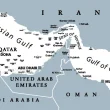Four years after the Arab Spring and we are witnessing yet another disappointing turn of events for justice in Egypt. A woman was shot at close-range yesterday as she marched to Tahrir Square to commemorate the Arab Spring. The Egyptian court recently ordered the release of Mubarak’s sons, Alaa and Gamal Mubarak, pending a fraud retrial. Hosni Mubarak, on the other hand, was freed of charges for conspiring in the killing of protesters during the Arab Spring and is now awaiting retrial for his final case of embezzlement.
Former Egyptian Defense Minister Abdel Fattah El-Sisi who led a military coup against then-President Mohamed Morsi won a miraculous 96.91% of votes during the 2014 Egyptian presidential elections in which had only 47.5% turnout rate. The swearing of El-Sisi into office was a huge blow for activists of the Arab Spring as it did not only signify the failure of the revolution, but the comeback of the old military-style regime.
The 2013 Coup d’état of President Mohamed Morsi was a bitter pill for America to swallow as it had put them in a tough spot; either to support the new democratically elected President Mohamed Morsi, or the military-led coup which was led by their own proxies. Of course, a majority of pro-American media had refrained from portraying the event as a Coup d’état and instead decided to take their hands off of Egypt by not taking sides.
Deputy Secretary of State William Burns said during his visit to Egypt: “Only Egyptians can determine their future. I did not come with American solutions, nor did I come to lecture anyone. We know that Egyptians must forge their own path to democracy. We know that this will not mirror our own and we will not try to impose our model on Egypt. [The U.S. would] stand behind certain basic principles, not any particular personalities or parties.”
This hands-off policy of course comes after they had gotten their hands in the cookie jar. The Arab Spring, which was initially dubbed as “spontaneous” and “indigenous” was later claimed to be a trophy of the US’ funding of civil society institutions in Egypt. It was stated in a 2011 New York Times article that:
“A number of the groups and individuals directly involved in the revolts and reforms sweeping the region, including the April 6 Youth Movement in Egypt, the Bahrain Center for Human Rights and grass-roots activists like Entsar Qadhi, a youth leader in Yemen, received training and financing from groups like the International Republican Institute, the National Democratic Institute and Freedom House, a nonprofit human rights organization based in Washington.”[1]
The April 6 Movement was led by Mohamed ElBaradei who was also one of the leaders standing alongside El-Sisi during the 2013 Coup d’état.
The National Endowment for Democracy (NED) which spent a whopping $2.5 million on Egypt in 2010, its highest on record for the country, was also given a special mention in the article:
“The Republican and Democratic institutes are loosely affiliated with the Republican and Democratic Parties. They were created by Congress and are financed through the National Endowment for Democracy, which was set up in 1983 to channel grants for promoting democracy in developing nations. The National Endowment receives about $100 million annually from Congress. Freedom House also gets the bulk of its money from the American government, mainly from the State Department.”[2]
The funding of pro-liberal democracy NGOs in Egypt was not something new to begin with. NED for example, had long funded civil society institutions across the Middle East and East Asia for democracy assistance and training. In the period of eight years from 2005 to 2013, NED had spent a total of $122.5 mil to Iraq, Afghanistan, Turkey, Egypt and Palestine alone, excluding numbers from other Middle Eastern countries like Jordan, Syria and Tunisia.
Stephen McInerney, Executive Director on the Project on Middle East Democracy mentioned the nature of the funding when he said that “We didn’t fund them to start protests, but we did help support their development of skills and networking,” and later added “that training did play a role in what ultimately happened, but it was their revolution. We didn’t start it.”
The idea that the uprising was engineered is far from speculative as “preparations” for the protest was done years ahead. In 2008, ElBaradei’s April 6 Movement were in New York receiving training, networking and support from US sponsors including the US State Department alongside technology giants to prepare them for the upcoming social media revolution[3]. Late April 2008, ElBaradei signaled his participation in Egyptian politics when he jokingly said at Harvard Kennedy School that he was “looking for a job” and wanted to become an “agent of change and an advocate for democracy.”[4] In 2010, one year ahead of the protest, ElBaradei announced his participation in the 2011 elections.
Lessons from the Coup
Four years after the 2011 Revolution and Egypt is back in square one with jails clogged than ever with Islamists.
The future of Islamists in Egypt lie in their ability to properly analyze and moderate support given to their allies and enemies of the varied political spectrum. Much of the 2011 Revolution has witnessed the Brotherhood lifting the bulk of the weights of the protests while some poster figures from secular and liberal leftists took credit. Their failure to accurately gauge their strengths and weaknesses inevitably led to the downfall of Morsi.
The Arab Spring and Coup d’état are big lessons for Islamists in steering their future participation in democratic events. The Muslim Brotherhood should realize that their Islamic grass-root movement is relatively strong in support compared to leftist civil society institutions that rely on foreign funding and media support for mileage.
The Brotherhood’s failure to analyze the deep rooted corruption in the Mubarak administration was one of the main causes of its inability to predict the coup. It was only when they were sworn into office that they realized of the existence of the deep-rooted corruption that had been occurring in the administration.
One of Morsi’s senior advisor mentioned,
“When we first got in [the presidential palace], they gave us handwritten notes rather than proper permits [for entry]. What does that tell you? We walked into the presidency and realized there wasn’t a presidency.”[5]
FJP’s Amr Darrag, the Minister of International Cooperation describes the severity of resistance in the administration just a few months before the coup when he said,
“Suppose you are a cabinet minister and everyone underneath you is resisting you.”[5]
In the end, it is fair to conclude that the coup was inevitable although telltale signs of the well-planned event had appeared in the beginning of Morsi’s administration. The first-ever democratically elected Egyptian political party could learn a lot from this experience and be able to make more strategic judgments on future political moves.
As the Muslim Brotherhood had endured decades of political repression and imprisonment, their future comeback in Egyptian politics would present as a time for them to translate their electoral support into a coherent and strategic vision of Islamic governance as a solution to maintain peace and stability in Egypt. [5]
Yusri Jamaluddin is the Co-Founder and Director of IRIS Institute. He is a Masters student in Business Analytics at Rensselaer Polytechnic Institute (RPI), New York. He is also a Scholar under the Master’s Scholars Research Program at RPI in which he works on translating a white paper on the impact of various cultures on global business strategies into articles for business practitioner outlets. He is the Co-Founder and Director of Human Capital for Future Business Leaders of America – Phi Beta Lambda RPI Chapter and is the current President of RPI Muslim Students Association. He previously worked at the Prime Minister’s office as an Analyst Intern where he gained insights and experience in policy analysis under the Government Transformation Program. He aims to pursue an academic career in public policy and is currently studying the impact of civil society institutions on governance and liberal democracy promotion in Muslim countries.
References
[1] “U.S.-Financed Groups Had Supporting Role in Arab Uprisings – NYTimes.com.” [Online]. Available: http://www.nytimes.com/2011/04/15/world/15aid.html?pagewanted=1&_r=2&emc=eta1. [Accessed: 24-Jan-2015]. [2] “NED Funding in Middle East and North Africa.” [Online]. Available: http://www.factsheet.info/v1/2014/06/ned-funding-middle-east-north-africa/. [Accessed: 24-Jan-2015]. [3] “The US Engineered ‘Arab Spring’: The NGO Raids in Egypt | Global Research.”[Online]. Available: http://www.globalresearch.ca/the-us-engineered-arab-spring-the-ngo-raids-in-egypt/28433. [Accessed: 24-Jan-2015]. [4] “Mohamed ElBaradei: Egypt’s Potential Future Leader?” [Online]. Available: http://www.huffingtonpost.com/2011/01/28/mohamed-elbaradei_n_815529.html. [Accessed: 24-Jan-2015]. [5] S. Hamid, Temptations of Power: Islamists & Illiberal Democracy in a New Middle Easy. Oxford University Press, 2014, p. 269.








